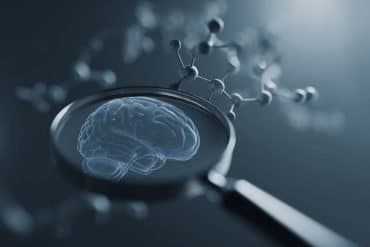Summary: Cognitive enhancers, often dubbed as “smart” drugs, might actually impair performance and productivity in neurotypical individuals. The study evaluated the effects of three widely used “smart” drugs using a complex decision-making task simulating everyday scenarios.
It was discovered that participants taking these drugs exhibited decreases in accuracy and efficiency, and required more time and effort to complete tasks compared to those on placebo.
These results question the efficacy of cognitive enhancers in individuals without cognitive deficits, like ADHD.
Key Facts:
- The study employed double-blind, randomized trials involving 40 healthy participants who took either a popular “smart” drug (methylphenidate, modafinil, or dextroamphetamine) or a placebo.
- Participants were given a computationally complex task (Knapsack Optimization Problem), representative of real-life cognitive challenges. They experienced a decrease in performance and increase in task completion time when on the drugs compared to placebo.
- The study’s results challenge the common belief that cognitive enhancers or “smart” drugs can improve cognitive performance in neurotypically functioning individuals.
Source: University of Cambridge
New research from the University of Cambridge and the University of Melbourne, published in Science Advances, shows neurotypical workers and students taking cognitive enhancers, or “smart” drugs, may actually be inhibiting their performance and productivity.
Drugs such as methylphenidate, sold under the brand name Ritalin among others, are commonly prescribed for attention deficit hyperactivity disorder (ADHD), but are also taken by those without a diagnosis, in the belief that the drugs will enhance focus and cognitive performance.
In four double-blinded, randomized trials in Melbourne, each a week apart, the same 40 healthy participants took one of three popular “smart” drugs (methylphenidate, modafinil or dextroamphetamine) or a placebo. They were assessed on how they performed in a test designed to model the complex decision-making and problem-solving present in our everyday lives.
While previous studies into the effects of smart drugs have used simpler cognitive tasks targeting memory or attention, the Melbourne trial involved more computationally complex activities that better simulate the difficult nature of tasks people encounter in daily life.
Participants were asked to complete an exercise known as the Knapsack Optimization Problem—or “knapsack task”—in which they were given a virtual knapsack with a set capacity, and a selection of items of different weights and values. The participants had to figure out how to best allocate items to the bag, to maximize the overall value of its contents.
Overall, participants taking the drugs saw small decreases in accuracy and efficiency, along with large increases in time and effort, relative to their results when not taking the drugs.
For example, when given methylphenidate—often used to treat ADHD in children, but increasingly taken by college students cramming for exams—participants took around 50% longer on average to complete the knapsack problem as when they were given a placebo.
In addition, participants who performed at a higher level in the placebo condition compared to the rest of the group tended to show a bigger decrease in performance and productivity after receiving a drug.
In terms of “productivity,” for example—the level of progress per item moved in or out of the knapsack—the participants in the top 25% under a placebo regularly ended up in the bottom 25% under methylphenidate.
By contrast, participants who had a lower performance in a placebo condition only very occasionally exhibited a slight improvement after taking a drug.
Professor Peter Bossaerts, Leverhulme International Professor of Neuroeonomics at the University of Cambridge, believes more research needs to be conducted to find out what effects the drugs are having on users without ADHD.
“Our results suggest that these drugs don’t actually make you ‘smarter,'” said Bossaerts.
“Because of the dopamine the drugs induce, we expected to see increased motivation, and they do motivate one to try harder. However, we discovered that this exertion caused more erratic thinking—in ways that we could make precise because the knapsack task had been widely studied in computer science.”
“Performance did not generally increase, so questions remain about how the drugs are affecting people’s minds and their decision making.”
Dr. Elizabeth Bowman researcher at the Centre for Brain, Mind and Markets at the University of Melbourne and lead author of the study said the results show we have yet to establish the effectiveness of pharmaceutical enhancers on our performance, when used by neurotypical people to perform everyday complex tasks.
“Our research shows drugs that are expected to improve cognitive performance in patients may actually be leading to healthy users working harder while producing a lower quality of work in a longer amount of time,” said Bowman.
About this psychopharmacology research news
Author: Peter Bossaerts
Source: University of Cambridge
Contact: Peter Bossaerts – University of Cambridge
Image: The image is credited to Neuroscience News
Original Research: Open access.
“Not so smart? “Smart” drugs increase the level but decrease the quality of cognitive effort” by Elizabeth Bowman et al. Science Advances
Abstract
Not so smart? “Smart” drugs increase the level but decrease the quality of cognitive effort
The efficacy of pharmaceutical cognitive enhancers in everyday complex tasks remains to be established.
Using the knapsack optimization problem as a stylized representation of difficulty in tasks encountered in daily life, we discover that methylphenidate, dextroamphetamine, and modafinil cause knapsack value attained in the task to diminish significantly compared to placebo, even if the chance of finding the optimal solution (~50%) is not reduced significantly.
Effort (decision time and number of steps taken to find a solution) increases significantly, but productivity (quality of effort) decreases significantly. At the same time, productivity differences across participants decrease, even reverse, to the extent that above-average performers end up below average and vice versa. The latter can be attributed to increased randomness of solution strategies.
Our findings suggest that “smart drugs” increase motivation, but a reduction in quality of effort, crucial to solve complex problems, annuls this effect.







